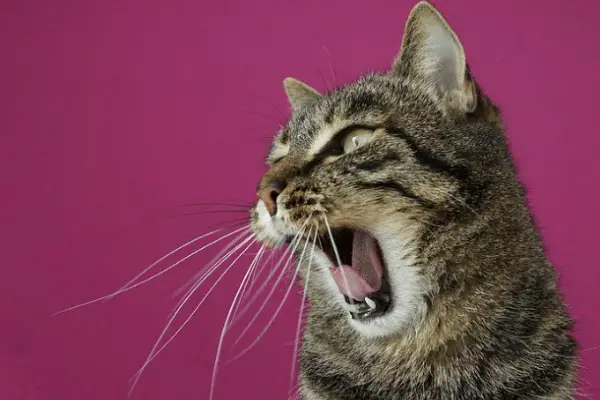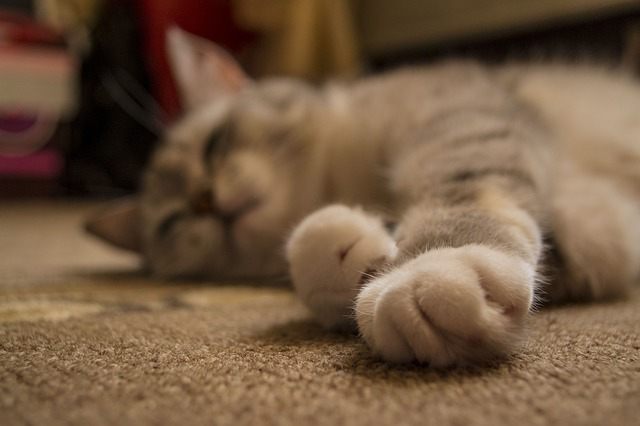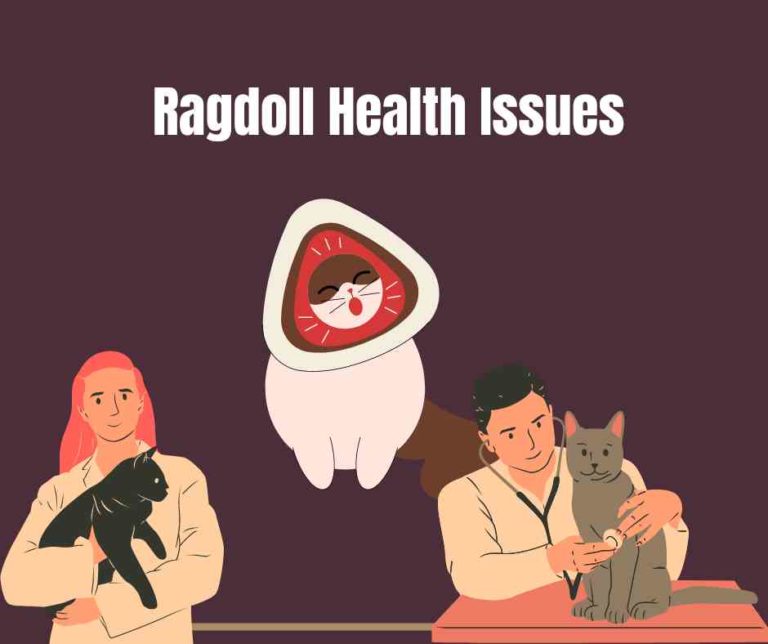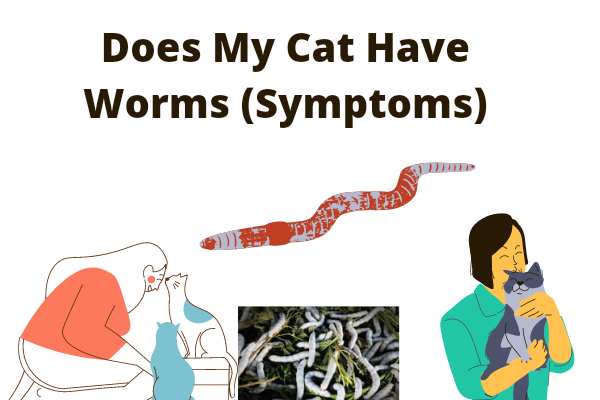14 Most Common Cat Anxiety Symptoms Explained

Cat anxiety symptoms are a vast topic among veterinarians and cat owners, in this post I will be discussing the common cat anxiety symptoms you should look out for.
Stress and depression are known as the major cat anxiety causes which can be avoided to a large extent.
I will do my best to keep things very simple as possible so keep reading.
Common Cat Anxiety Symptoms
The following are the most common cat anxiety symptoms you should know:
1. Increased destructive behavior
The fact that your cat is soiling your house indicates the cat is anxious or lonely to the extent that it has nothing better to do.
This indicates that your cat is frustrated and begins to destroy everything around him by pushing items down.
At home, cutting or chewing the papers is a clear indicator that your cat is frustrated, which might be due to anxiousness.
If you arrive home and discover your cat has soiled your house, don’t blame the cat; it’s entirely your responsibility.
Read more: 10 Most Common Cat Behavior Problems & Helpful Tips.
2. Cat’s constant refusal to use litter boxes
Elimination outside the litter box might be an indication of stress as well as a signal of anxiety.
Your cat may refuse to use the litter box due to depression or frustration, which might be an indication of disease.
It might also be a symptom of a traumatized cat, but the essential thing to remember is that you should not dismiss it.
When you’re convinced you’ve left your cat alone at home for too long, you can only attribute reluctance to nervousness.
Or if you’re certain your cat isn’t sick or suffering from a drug side effect.
3. Cat constantly attempting to escape
Escape attempts indicate that something is wrong with your cat; it’s either that your cat feels insecure or that there is too much tension present.
Most cat breeds are quite active and like exploring their surroundings; but, if you leave your cat alone all of the time, your cat may get anxious.
Your cat will seek an escape route as a result of despair and anxiety.
If you do not neuter your cat, your cat may wish to flee, which implies that when the cat is in heat, fleeing is the next best alternative.
As a result, cats’ continual attempts to flee have been related to the development of anxiety.
4. Cat excessively meowing
Every time your cat meows, there’s a purpose for it because, in my experience with cats, they don’t meow in vain.
When a cat is bored, unhappy, anxious, or frustrated, he or she complains in a louder tone of voice.
Depending on how you care for your cat, excessive vocalization might be an indication of worry.
Meowing loudly might be a sign of pain or disease, but if you’re certain your cat is well, consider spending extra time with him.
Read more: How Long Does Cat Cold Last (8 Signs, Causes & Fix).
5. Increased aggressive behaviors
Attacking you every time you try to leave the house is an indication of anxiousness that should not be overlooked.
Bengal cats, for example, should not be left alone since they have a reputation for attacking their owners, despite the fact that they are illegal in some areas.
As a result, attempting to attack you or clinging to you as you leave the house should not be overlooked as a sign of severe cat anxiety.
6. Cat refusal to use scratch post
You should consult a veterinarian or an animal behaviorist if your cat refuses to utilize the scratch post and instead scratches your furnishings.
There are a variety of reasons why your cat may quit utilizing the scratch post you give, in addition to nervousness.
Stress, despair, frustration, traumatic event, sickness, a filthy litter box, and other factors are among them.
All of this may be fixed before matters deteriorate to the point where you have to spend additional money on the veterinarian.
Read more: How To Comfort A Sick Cat: 14 Useful Tips
7. Obsessive eating behavior
In any breed of cat, eating too quickly or not at all is linked to anxiety.
Something is amiss if every time you arrive home and feed your cat, you find your cat eating quicker than normal.
It’s possible that your cat is hungry, but it might also be a sign of despair or irritation, so don’t dismiss it.
8. Inappropriate urination
This might be an indication of separation anxiety or disease, but if you’re certain your cat is healthy, you should investigate separation anxiety.
A cat suffering from or experiencing anxiety is known to urinate wherever and everywhere.
Things are getting more serious when it comes to peeing outside the litter box, and you should consult your veterinarian.
9. Constantly chewing cables or cords
When cats are bored or lonely, they gnaw on everything, which can be a difficult task for some cat owners.
They can attack you if they ignore their toys to chew on cables, indicating unhappiness or dissatisfaction.
Anxiety, despair, frustration, and stress are the only reasons this occurs; do not dismiss it as it can become a problem over time.
10. Constantly trying to get attention
A cat that is continuously begging for attention is sending you a message that you are not giving it your all.
When a cat continues to meow or follows you around excessively, it is indicating that the cat requires attention.
Most of the time when your cat asks for attention, it’s because they’re lonely and irritated or suffering from anxiety.
As a result, if your cat is always clamoring for your attention, you should set aside additional time to spend with him.
11. Increased self-isolation
Something is amiss with your cat if it begins to hide in the regular places.
It’s possible that your cat is unhappy, worried, or irritated; it’s also possible that you’re not giving your cat enough attention.
This might also indicate that your cat has lost faith in you or no longer feels comfortable in your home.
If your cat is hiding frequently, it might be a sign that he or she is unwell, so attempt to figure out why.
Consult a veterinarian if you need assistance. If your cat isn’t ill, seek the assistance of an animal behaviorist.
12. Excessive self-grooming
Every pet parent admires a neatly groomed cat, but you should be careful to understand when your cat is excessively grooming.
Your cat, on the other hand, may be anxious if it spends the entire day grooming itself.
You may notice that your cat is grooming herself to the point that she is losing hair on some sections of her body.
13. Freezing or shaking
Freezing or shaking in cats can be linked to cat anxiety, so always monitor your cat when you return home.
If your cat becomes terrified to the point of trembling on a frequent basis, it’s important to think about whether he’s overstimulated and needs a break.
Create a private safe haven for your cat where he or she may withdraw if he or she is feeling frightened or overwhelmed.
14. Cat avoids normal activities
If your cat avoids things that they would regularly engage in, it might be a symptom of nervousness.
Anxious cats may lose interest in playing or engaging with their human companions.
Is your cat refusing to participate in playtime? Do they seem to be avoiding you?
Take notes and keep track, so you can tell how much your cat is acting up and inform your veterinarian.
Causes of anxiety in cats
Here are the most prevalent causes of anxiety in cats that you should be aware of and avoid:
- Frustration
- Leaving cat alone at home for too long.
- Environment not being secure enough
- Moving to a new home
- Depression and too much stress.
- Lack of constant companionship and care.
- A change in the people around.
- The sudden loss of a loved one.
- Genetic factors
- Having a newborn baby
Natural ways to fix cat anxiety
The following are some typical methods for preventing or fixing anxiety in cats:
- Provide lots of mental stimulation for your cat.
- When you come home, provide plenty of cuddles and fun.
- Enrichment activities should be provided.
- Get a new pet to keep you company.
- De-sensitize your cat to anxiety triggers.
- Make sure you have adequate time to play.
- Shorter absences should be practiced first.
- Ensure that the setting is both safe and stimulating.
- Use cameras to keep an eye on your cat’s movements outside the house.
- Provide a glimpse of the outside world through a window.
- More money should be spent on puzzle feeders, toys, and pet cams.
- Maintain a low-key approach to your everyday departures.
- Encourage your cat to live independently.
Lastly…
To soothe your nervous cat, the first thing you should know is that you should never penalize or criticize them for their worried behavior.
This will simply exacerbate negative connections and worry, making the situation worse rather than better.
It should be the objective to make children feel comfortable and at ease in their surroundings.
Once you’ve noticed your cat’s nervous habits, the first step is to schedule an appointment with your veterinarian to diagnose or rule out any underlying health concerns or toxins that may be causing your feline to be stressed.
Because cats prefer to hide their suffering, this is unlikely to be visible, and a complete set of blood tests and other testing may be required.



![How Do Cats Get Leukemia [9 Top Ways] How Do Cats Get Leukemia](https://petcreeks.com/wp-content/uploads/2023/04/How-Do-Cats-Get-Leukemia-768x555.jpg)

![Bacterial Infections in Cats Symptoms [9 Signs] bacterial infections in cats symptoms](https://petcreeks.com/wp-content/uploads/2021/03/Symptoms-of-bacteria-infection-in-cats.jpg)
